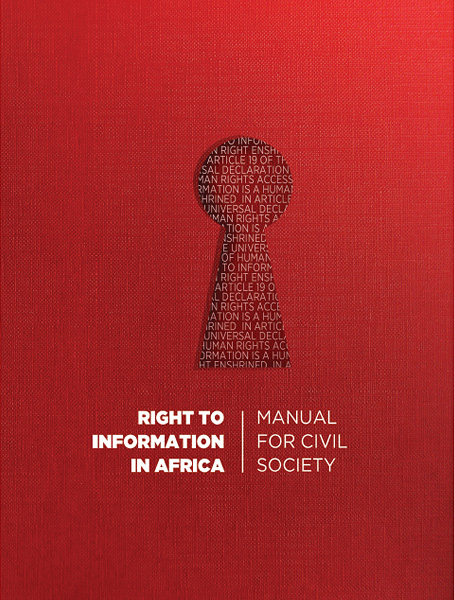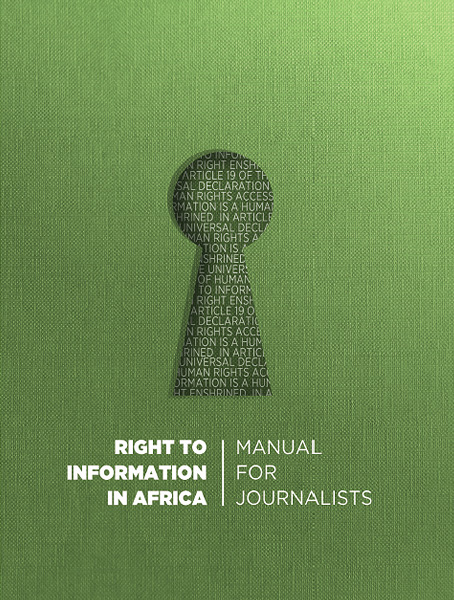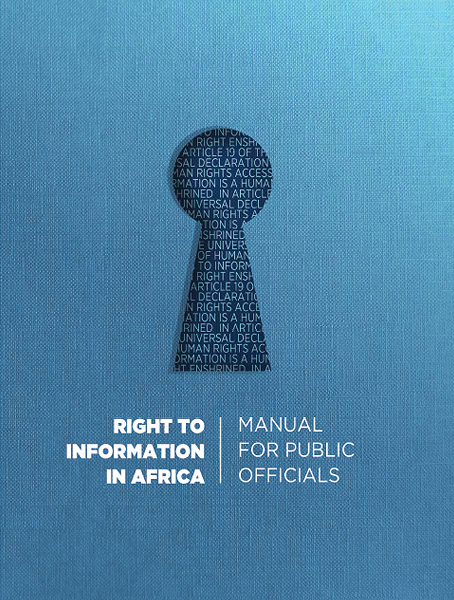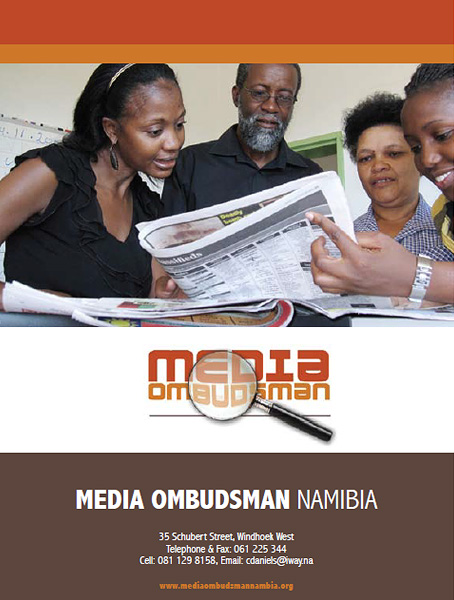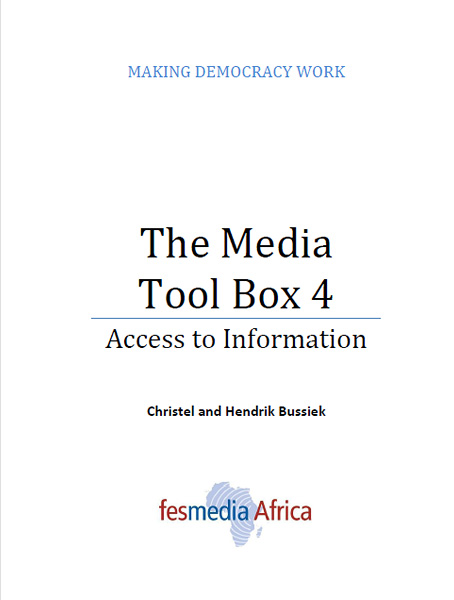ACCESS TO INFORMATION Tools
RIGHT TO INFORMATION IN AFRICA
Manual for Civil Society
The right to information aims to make more information available and provide equal access to information across all sectors of the community. The right to information is internationally affirmed under Article 19 of the Universal Declaration of Human Rights (UDHR) and the International Covenant on Civil and Political Rights (ICCPR).
RIGHT TO INFORMATION IN AFRICA
Manual for Journalists
The right of access to information is now well established globally and increasingly, African governments are beginning to recognize the usefulness of this right and are passing laws that allow better access to information by the public. As the right of access to information continues to gain ground in Africa, it is high time fresh perspectives are sought about the importance and role of the media in advancing the right of access to information either through their involvement in the campaign for the adoption of access to information laws or through usage of the law after implementation.
RIGHT TO INFORMATION IN AFRICA
Manual for Public Officials
We are pleased to present this Resource Manual on access to information for public officials which is a collaborative effort of Special Rapporteur on Freedom of Expression and Access to Information in Africa, African Freedom of Information Centre and Centre for Law and Democracy with financial support of Friedrich Ebert Stiftung.
MEDIA OMBUDSMAN Namibia
In Namibia and other democratic countries, newspapers, radio, TV and other media bear a heavy responsibility to keep the public informed. It is a vital function. The Namibian Constitution encourages people to participate actively in public life, but they can only do so if they know what is going on. Precisely because the media play such an important role in creating a healthy democracy, media freedom is a crucial right, and is guaranteed in the country’s constitution.
The Media Tool Box 4
Access to Information
Access to information is widely acknowledged as a basic right of citizens in a democracy. And the need for appropriate legislation to give shape and meaning to that right has been a fashionable topic of debate for some time now – not just in the media fraternity but equally among lawmakers and civil society as a whole. The important thing – as with all fashions – is to separate the hype from the substance and decide what is really wearable in everyday life. In practical terms: what information are we talking about, what exactly does the right to access entail and how can it be framed in a law in a useful and practicable manner?

